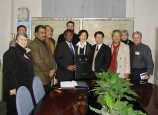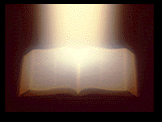
Iran says will help U.S. if it quits Iraq
Sun Nov 26, 2006 9:45am ET
TEHRAN (Reuters) - Iranian President Mahmoud Ahmadinejad said on Sunday Iran was ready to help the United States and Britain in Iraq but only if they pledged to change their attitude and withdraw their troops.
The remark comes amid growing calls for Washington to engage Iraq's neighbors, Iran and Syria, to help prevent Iraq plunging into civil war.
A senior U.S. official said this month Washington was "in principle" ready to discuss Iraq with Iran but said the timing of such talks was unclear. Ahmadinejad has previously said he would talk but only if Washington changed its behavior.
"The Iranian nation is ready to help you get out of that swamp (in Iraq) on one condition ... you should pledge to correct your attitude," Ahmadinejad said in a televised speech to a parade of the Basij religious militia.
"Go back and take your forces to behind your borders and serve your own nations," he added.
Iraqi President Jalal Talabani should make a delayed visit to Tehran on Monday to discuss Iraq after a curfew in place since a mass car bombing on Thursday was due to be lifted.
Ahmadinejad regularly condemns the U.S. occupation of Iraq and complains about U.S. bases in the region. Washington accuses Iran of seeking to foment unrest, while Iran blames the violence on the presence of U.S. troops.
The Iranian president also criticizes what he says is a hostile U.S. and British attitude to Iran, particularly over its disputed nuclear programme.
Western countries, including the United States and Britain, accuse Iran of seeking to develop atomic bombs, a charge Iran denies. It says its aim is to generate electricity.
Ahmadinejad urged countries in the region to work together to expel foreign forces from their soil.
"Let us put our hands together and expel enemies who are against humanity from our countries and our sacred lands," he said.
Iran has in the past called for a security pact between Iran and other regional states, but Gulf Arab countries, dominated by Sunni Muslims, have long been suspicious of Shi'ite Muslim Iran's intentions in the region.
© Reuters 2006. All Rights Reserved.






